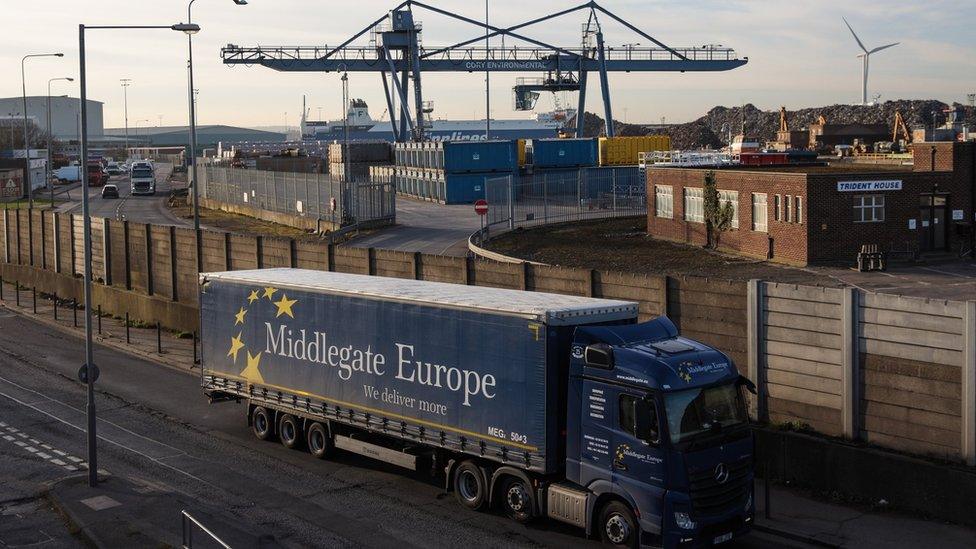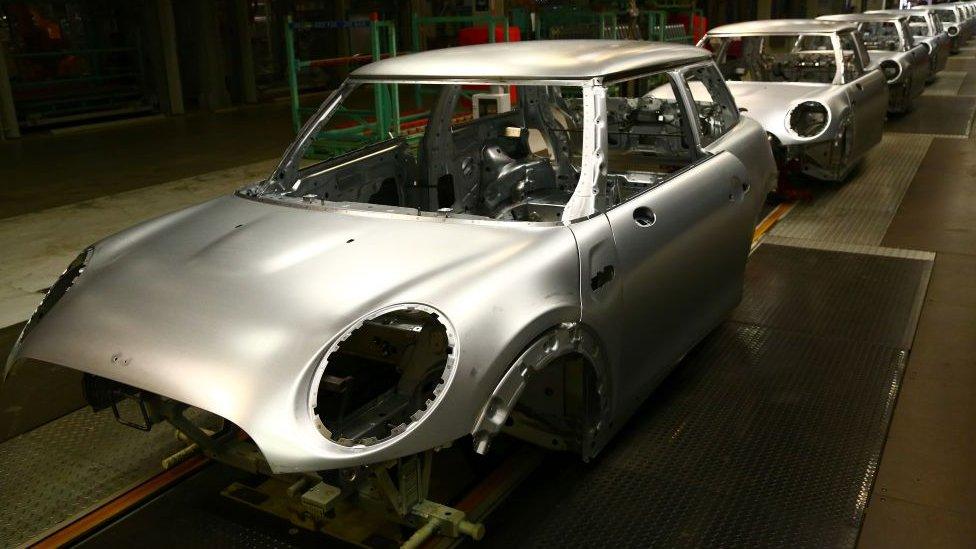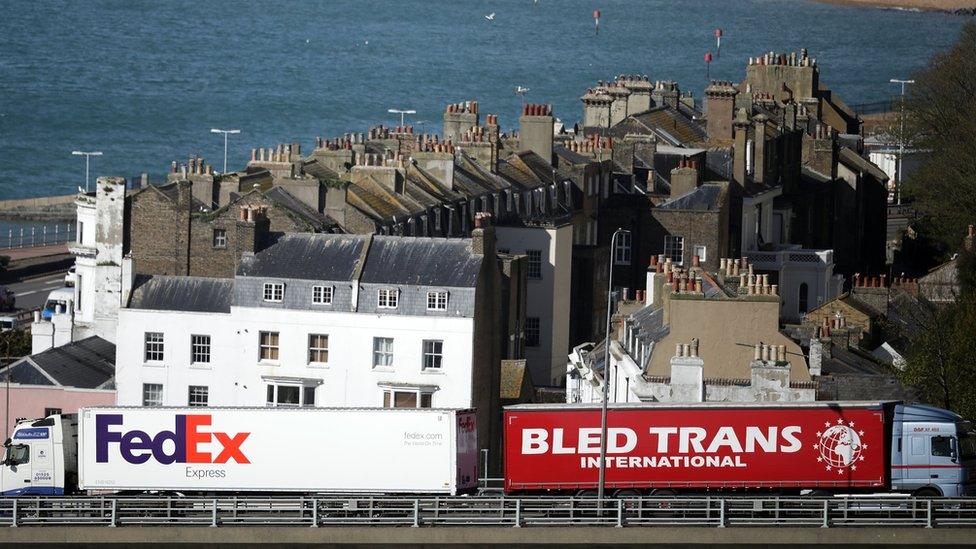Brexit: How did HMRC get to a £20bn customs cost?
- Published

Downing Street was quick to dismiss as "speculation" the suggestion that the proposal for a highly streamlined customs arrangement with the EU after Brexit could cost businesses up to £20bn per year.
Speculation? It's a little more than that.
It is certainly an estimate rather than a precise figure - but it was made publicly by the most senior civil servant at Her Majesty's Revenue and Customs (HMRC), Jon Thompson.
HMRC has already hired more than 1,000 civil servants to work on Brexit and is planning to hire several thousand more. It seems safe to presume that they have been crunching a few numbers.
So what do we know of how Mr Thompson reached his estimate?
First of all let's remember that he was talking about one of the two proposals for a future customs relationship with the EU that are being debated within government.
The highly streamlined customs arrangement, also known as maximum facilitation or max fac, is broadly favoured by supporters of Brexit and would rely on technology and trusted trader schemes to make trade as frictionless as possible.
According to Mr Thompson, by far the largest new cost under such a scheme would come from the requirement to fill in customs declarations.
As long as the UK is in the EU customs union, no declarations are needed for trade between the UK and the rest of the EU. But under the max fac proposal - however frictionless borders might be - customs declarations would have to be made.
Working figure
Quantifying the cost is really difficult because there are a huge number of variables, but there have been some studies done recently on the average cost of an individual declaration.
Mr Thompson mentioned independent studies from University of Nottingham and from the consultancy firm KPMG, and said HMRC had been working on an estimate itself.
Taking account of numerous caveats, he cited a range between £20 and £55 per declaration and said HMRC had come up with a working figure for ministers of £32.50 for each one.
It is based on what officials know of the costs businesses actually face today, but HMRC has not revealed its precise methodology.
Andrew Grainger, a trade facilitation expert and the author of the University of Nottingham study, suggested HMRC's estimate was not unreasonable:
"The estimated £32.50 figure per declaration does not look out of place when one considers the current charges by logistics companies to assist traders with customs and other border formalities," he said.
"In instances where goods are held for inspection, the costs will be many times higher. In instances where procedural demands are minimal, such as for goods sent by post, the costs could be lower".
So how many additional customs declarations might be required once the UK has left the EU and its customs union? The National Audit Office, using HMRC figures from 2016, says there are roughly 200 million intra-EU transactions that currently fall under customs union rules, external.
After Brexit, under the max fac proposal, HMRC is assuming that customs declarations would have to be made for every one of those transactions.

Rules of origin in trade deals usually require about 55% of the components of cars to be considered local.
Businesses need to make declarations twice (at either end of their supply chain) - one for exporting goods from one country and one for importing them into another.
So a back-of-the-envelope style calculation is that there would be 400 million declarations costing roughly £32.50 each.
That's an estimated total cost of £13bn.
'Doesn't come cheap'
Mr Thompson then set out - briefly - the potential for further costs generated by rules of origin requirements.
In 2013 the government's Balance of Competence Review, external suggested UK firms would be faced with costs linked to rules of origin ranging from 4% to perhaps 15% of the value of the goods sold. Other estimates are slightly lower - from 2% to 6%.
According to the Office for National Statistics, UK goods exports to the EU in 2016 were worth £145bn, so a 4% cost (£5.8bn) would be consistent with Mr Thompson's estimated figures.
Again, a lot depends on exactly what you include in your calculation. A rules of origin certificate can be obtained for about £30 from a chamber of commerce, but it's a lot more complicated than that.
"Beyond the price of the certificate itself you also need to be absolutely certain the product you are exporting actually meets the criteria set out in any given trade agreement," says Sam Lowe, a trade expert at the Centre for European Reform.
"Sometimes proving origin is easy, but sometimes it is not and doing so requires paying for specialist help, which doesn't come cheap."
So, for example, if you want to export cars to South Korea under the EU-South Korea free trade agreement, you need to be able to demonstrate that 55% of the value of the car is created in the EU - so you might have to pay for expertise in free trade agreements, agents, administration, an audit of your supply chain, legal advice and so on.
Mr Thompson told the Treasury Select Committee that it is a difficult overall cost to estimate but suggested that it was reasonable to assume an additional cost to cover rules of origin of several billion pounds per year for business.
Producing a total estimated cost under the max fac proposal, he concluded, of "somewhere between £17bn and £20bn."



- Published24 May 2018
